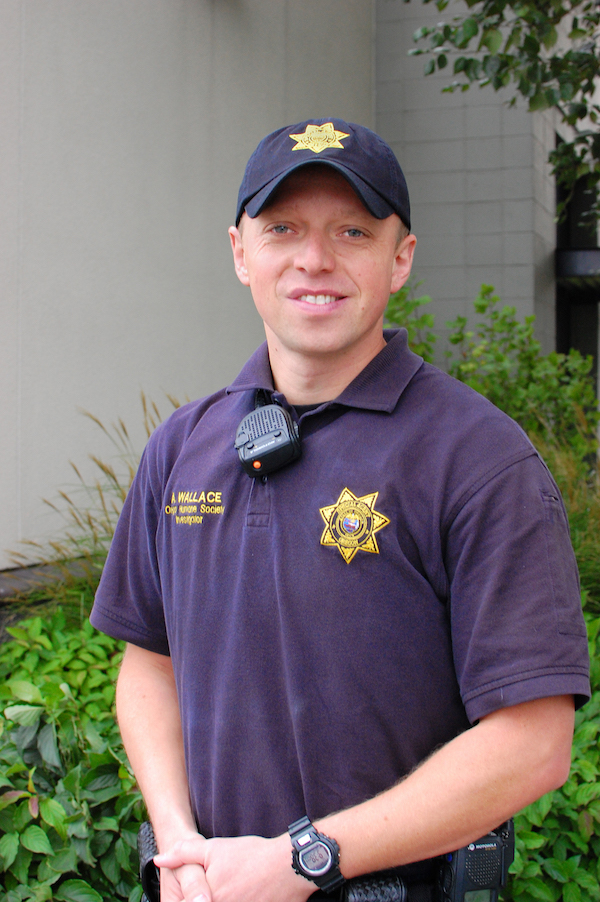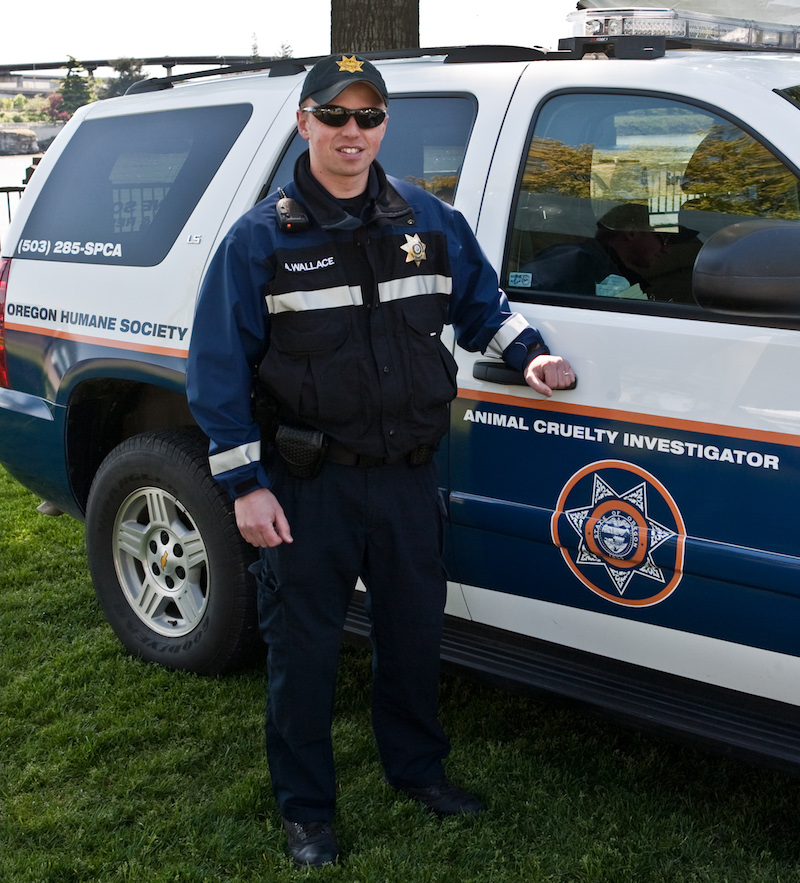A Special Agent Is Making Animal Welfare A Priority
interview by Sheila G. Miller
A special agent commissioned with the Oregon State Police and employed by the Oregon Humane Society, Austin Wallace is in his thirteenth year serving in this role. He’s worked in law enforcement and animal welfare around the country for nearly twenty years. As a child in Scotland, he grew up with budgies (Scottish slang for parakeets) and felt a kinship with animals. He got into law enforcement, first covering the animal control officer on vacation and eventually taking over the position full time. “It wasn’t my main career goal, but it found me,” he said. The Oregon Humane Society, which this year celebrates its 150th anniversary, receives more than 5,000 calls and emails to its investigations line each year, and Wallace and the rest of the team work on more than 1,000 of those. “Call in,” Wallace said. “No matter how small a concern it is, we’ll always get to it. Whether it’s a dog without a blanket or water, up to an aggravated abuse crime, we will treat it with respect and care, and we will always get there.”
As an animal lover, does it get difficult I’ve definitely seen an increase in it’s unbelievable the huge increase in to see so many animals in pain?
It’s the opposite, as odd as that sounds. I really feel that with my work, I’ve been able to be that voice for the voiceless. I’m doing work lot of people would not necessarily consider serious. Not everybody considers animal welfare crimes as bad as person crimes. It’s awful to see, but I feel like being able to be a voice for them, I’m proud of it, even though it can be horrible. It’s like, by being in this position and staying, I’m professionalizing it, and I’m spreading the word. It makes me feel good instead of bad. I’m totally sure that there are people who look at me like I’m a critter cop— but there are people out there who really recognize the importance of what we do.
Are you seeing more or less animal abuse than you did at the start of your career?
I’ve definitely seen an increase in crime, but it’s not a losing battle. The statistics may go up from year to year, but to me the crimes have always been there. It’s more awareness—people are not getting away with it. There is now a way to report this stuff anonymously, and the awareness really gets people to come out of the woodwork. It used to be, someone kicked a dog and it got a broken leg and you said, ‘What a shame,’ but now there are animals cops who can investigate this stuff and seize the animal.
Are there trends in animal abuse that you’re seeing these days?
When I first came on, you heard a lot about hoarding situations, huge cat populations and things like that. It’s still an issue, but we’ve seen a definite upswing in aggravated crimes, animals that have been seriously injured or killed from violent attacks. And then we see a lot of malnutrition of horses—it’s unbelievable the huge increase in starved horses we’ve seen in the last few years. A lot of it is a lack of knowledge. But it really amazes me. I’ve seen some horrible cases, but I’ve never understood the idea of, ‘I can’t afford this animal, and it’s not my fault, so I’m going to let it starve to death.’ There’s never a need to let that happen.
So how do we prevent this behavior?
Is there something that works? One of the biggest things in Oregon that truly makes a difference is the stipulation we have that if you, say, starved your dog or broke its leg, if you’re convicted in Oregon of that misdemeanor you’re not allowed to be in possession of an animal for ve years. For certain crimes, when you cross the threshold with the number of animals, it becomes a felony. That possession rule is better than any jail time on a case.













